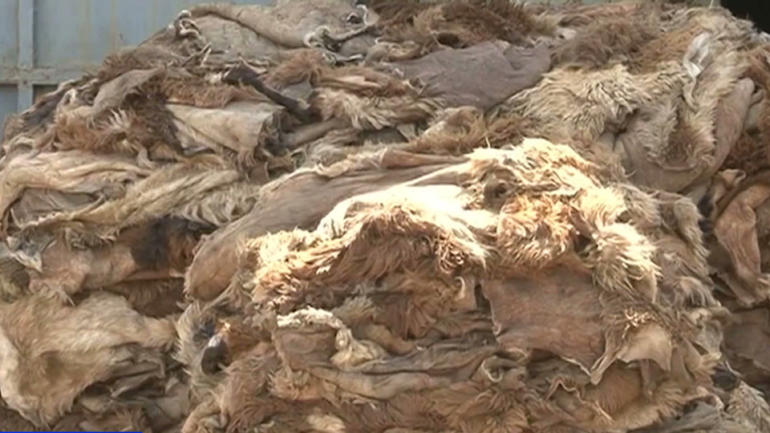Chanel rocked the fashion world when it announced in December that it would no longer be using fur and exotic animal skins like python, lizard and crocodile.
CGTN’s Karina Huber reports.
The company said it has become increasingly difficult to source exotic skins that meet their ethical standards. The move was a win for animal rights groups.
“It’s a little more difficult to get people to care about things that aren’t cute and fuzzy like baby foxes and chinchillas but these animals – pythons, crocodiles – they feel pain,” PJ Smith, Director of Fashion Policy at Humane Society of United States said.
Some in the industry said exotic skins can be sourced ethically by euthanizing the animals before killing them. But Burak Cakmak, the dean of Parsons School of Fashion in New York, said the industry is notoriously opaque and euthanization is not common. He has visited several farms and tanneries.
“I have seen a range of approaches and even in the ones that are most responsible, it’s still not a pretty picture,” said Cakmak.
Cakmak said Chanel’s move is a sign of the times. In California it is illegal to sell python skin products. It has also introduced a bill that would ban the sale of new fur products across the state. “With the young generation there is definitely a lot more interest in doing everything in a much more responsible and sustainable way so that trickles down all the way to animal rights and what kind of materials they want to see and everything they want to buy,” he said.
Brands are now rewarded for taking a decisively progressive stance. When Gucci announced it was going fur-free on Instagram, it received more than 170,000 likes. In China demand for fur remains strong, raking in 17 billion dollars annually in sales. But Smith says things are changing.
“In China, pet ownership has been going up and that means that people in China are caring more about animal welfare – especially when some of these big luxury brands like Chanel, Burberry, Gucci start creating these animal welfare policies. I think that really resonates with the Chinese consumer,” said Smith.
Chanel’s decision seems to be having a domino effect on the industry. A month after Chanel made its announcement, another high-end brand, St. John announced it too would ban fur and exotic skins.
Nailah Lymus discusses the gender gap in the fashion industry
CGTN’s Rachelle Akuffo spoke with Nailah Lymus, the CEO of Underwraps Agency about gender imbalance in senior positions in fashion industry.
 CGTN America
CGTN America

